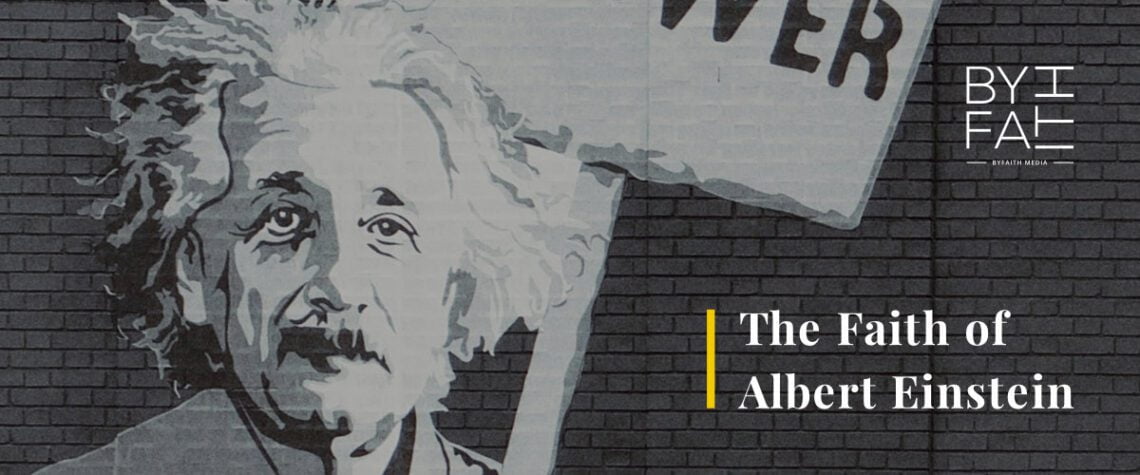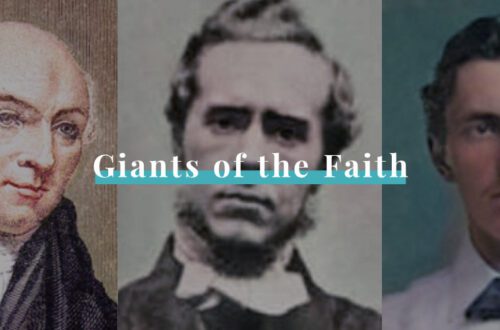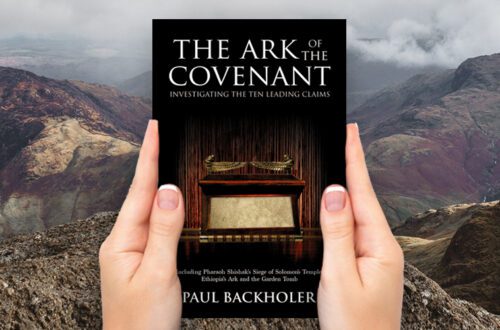
Albert Einstein’s Faith and Rejection of Atheism
I am not an atheist… the problem involved is too vast for our limited minds… We are in the position of a little child entering a huge library filled with books in many languages. The child knows someone must have written those books. It does not know who or how. It does not understand the the languages in which they are written… That, it seems to me, is the attitude of the human mind, even the greatest and most cultured, toward God. We see a universe marvellously arranged, obeying certain laws, but we understand the laws only dimly
– Glimpses of Great, Interview by G.S. Viereck, 1929
Albert Einstein’s views on faith and God evolved throughout his life. He starts his life with faith, loses it, rejects the idea of God, accepts that a God exists, but not the God he was taught. By the end of his life he calls himself ‘a religious non-believer,’ declaring, ‘I want to know how God created this world… I want to know His thoughts; the rest are details.’
God is a mystery. But a comprehensible mystery. I have nothing but awe when I observe the laws of nature. There are not laws without a lawgiver
– Einstein and the Poet. In Search of the Cosmic Man by M. Berkowitz, 1950
Raised by secular Jewish parents, Einstein attended a local Catholic public elementary school in Munich. He wrote in his autobiographical Notes that he had gradually lost his faith early in childhood. Later in life, he stated that he believed in a God who reveals Himself in the orderly harmony of what exists, not in a God who concerns Himself with fates and actions of human beings. He rejected his Jewish and Christian heritage, declaring he did not believe in a personal God who rewards and punishes. However, Einstein believed that the highest principles for our aspirations and judgments are given to us in the Jewish-Christian religious tradition.
Einstein was annoyed when atheists claimed him for themselves and misquoted him or used selective quotes
– Einstein: The Life and Times by Prince Hubertus, 1971
He clarified that he was not an atheist, preferring to call himself an agnostic or a ‘religious nonbeliever.’ He believed in God, but was never sure what that God was. Einstein rejected the concept of a conflict between science and religion, and held that religion was necessary for science.
Science without religion is lame, religion without science is blind
– Albert Einstein, Science and Religion, 1940
Einstein’s views on faith were deeply held. He believed that the most beautiful thing we can experience is the mysterious, which is the source of all true art and science, and that God spoke through them. He also believed that peace cannot be kept by force; it can only be achieved by understanding. Einstein was a strong advocate of curiosity and imagination, stating that the intuitive mind is a sacred gift and the rational mind is a faithful servant.
He noted that the Judeo-Christian tradition in the West created a society that honours the servant, the lowly and the poor, but it has forgotten the wonder of this heritage. Einstein’s religion consisted of a humble admiration of the illimitable superior Being who reveals Himself in the slight details we are able to perceive with our frail and feeble mind. He also believed that science without the light of religious belief was lame, unable to perceive and religion that rejected science was blinding.
Believers and non-believers have cherry-picked quotes from Einstein about faith and God, but his true faith story is like Job’s, of ups and downs, of questions, doubts, reassessment and inquiry. He ends his life with a faith he can’t define in a God who is beyond him.
But what did Albert Einstein think of Jesus? Einstein accepted, like all credible historians do, that Jesus of Nazareth was a real person.
I am, “enthralled by the luminous figure of the Nazarene,” he said, adding his complete confidence in the historical Jesus, “Unquestionably! No one can read the Gospels without feeling the actual presence of Jesus. His personality pulsates in every word. No myth is filled with such life”
– Saturday Evening Post in 1929
Jesus said to Martha, “I am the resurrection and the life. He who believes in Me, though he may die, he shall live. And whoever lives and believes in Me shall never die. Do you believe this?” (John 11:25-26).
- Science and Faith
- Christianity and Culture
- Christianity and Art
- Christian Book Reviews
- Recent Articles
By Paul Backholer. Find out about Paul’s books here.




